Do Not Dismiss the Unemployed Who Lack College Degrees
By Dr. Duru written for One-Twenty
May 12, 2009
Zachary Karabell, Ph.D. of RiverTwice Research gave me one more reason to stop watching Fast Money (and CNBC in general). It has been bad enough that Karabell has presented himself as something of a permabull throughout this recession and bear market. It has been even worse that he has habitually discounted the unemployment numbers by routinely claiming that Americans with college degrees have been relatively unscathed by the downturn - the implication being that the economy remains sound since the people with the real money are still earning it (in 2007, workers with a college degree earned an average 83% more than workers with just a high school degree - I am sure the comparison is skewed by a small number of extremely high wage earners). On Friday, Karabell completely threw me overboard with the following commentary (see 7:41 on the CNBC video):
"The unemployment rate for college-educated, over 25 ticked up all of 0.1% from 4.3 to 4.4. It was really a jobs report that's destroying people who are both minority and under-educated. But, you know, it's not for the others. So, that's a positive I think for some of the consumer names and the market."
I realize that I am probably even more sensitive than usual on this topic due to my new status as a lagging indicator, but I hope I am one of many people who find absolutely no comfort and relief in the observation that any segment of the workforce is suffering so disproportionately from the rest.
Let's examine the numbers that provide Karabell so much comfort. The Bureau of Labor and Statistics (BLS) reported last Friday that the overall unemployment rate jumped from 8.5 to 8.9%. For workers aged 25 and up with college degrees or better, the unemployment rate went from 4.3 to 4.4%. The unemployment rate not only increases sharply with less education, but the jump from March to April also worsens. Workers with no high school diploma experienced a large jump from 13.3 to 14.8%. Moreover, "Black or African American" workers suffered an increase in unemployment from 13.3 to 15.0% while White and Hispanic workers barely experienced any change (I do not know why the BLS does not include other ethnic groups). In other words, Karabell finds reassurance that May's unemployment report worsened mainly because under-educated Black workers lost an outsized number of jobs this past month whereas "the others" stabilized. I am certainly disturbed by the apparent callousness and disregard for human suffering in Karabell's attitude, but, ironically enough, the data from February to March was much more unkind to White and Hispanic workers than to Black workers (on a relative basis). Let's disengage from the emotionally charged issue of ethnicity and race and examine the numbers by educational attainment to understand that we are ALL in this (leaky) boat together. The graphs below show a very close correlation across educational attainment.
This first graph shows the ratio of the unemployment rate of different education groupings to those with at least Bachelor's degrees. Since 2000, all the rates have moved together. Ironically enough, those without Bachelor's degrees are faring relatively better than the previous decade. (The BLS does not readily provide data before 1992).
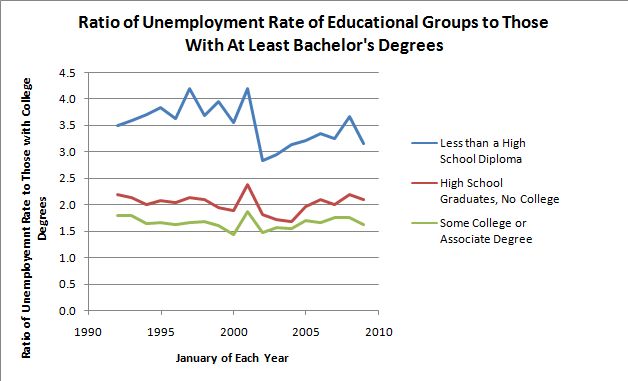
The next set of charts show the individual unemployment rates dating back to 1992 for each level of educational attainment, scanned directly from the BLS website. Note in particular, how steeply and how swiftly the unemployment rate has risen for ALL groups during this recession.
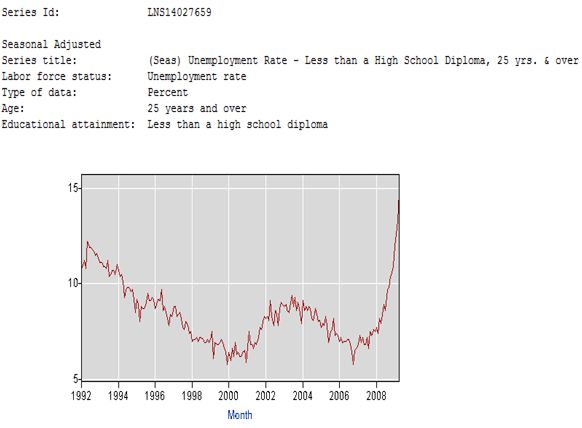
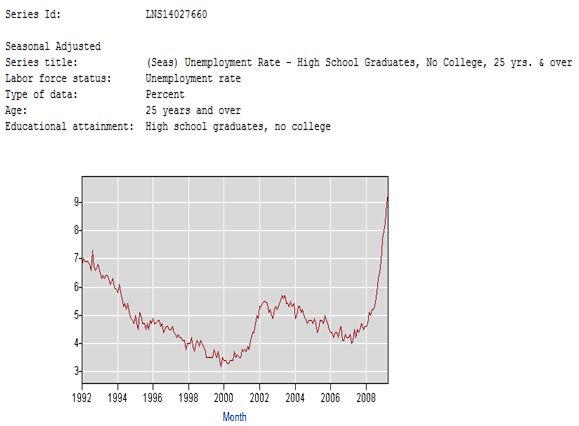
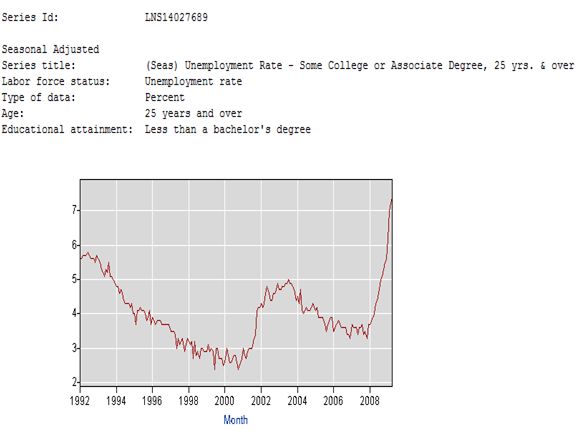
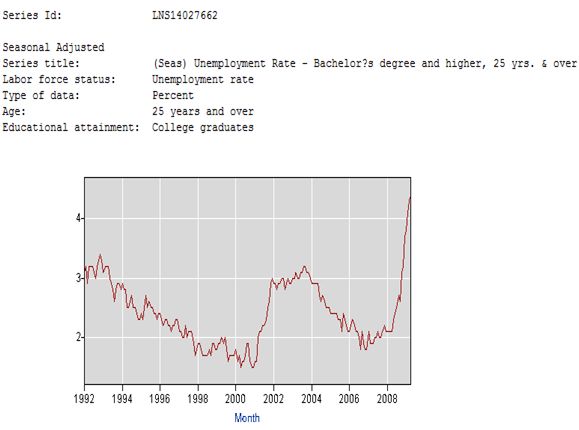
Maybe I need a new pair of rose-colored glasses to see the reason for optimism in these charts.
The good news is that percentage of Americans with college degrees has steadily and consistently increased for at least the last 70 years, from 4.6% in 1940 to 29.4% in 2008...
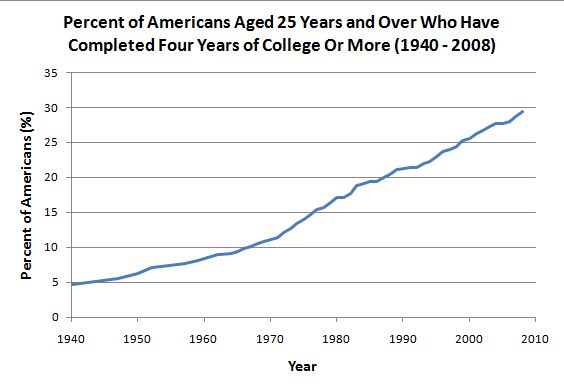
(Note that those with college degrees currently constitute 34.1% of the civilian workforce)
...but the college-educated remain in the definite minority. We simply cannot celebrate an economy where only this select group of people is doing fine, and others are not. We should be concerned that the other side of this recession may reveal that the current rate of educational attainment is insufficient to deliver the same levels of prosperity that a broad spectrum of Americans enjoyed prior to the recession. Dr. Karabell, let us not get comfortable about anyone's suffering and instead continue building an economy that allows maximum opportunity for as broad a spectrum of people as possible.
Be careful out there!
Full disclosure: no related positions. For other disclaimers click here.